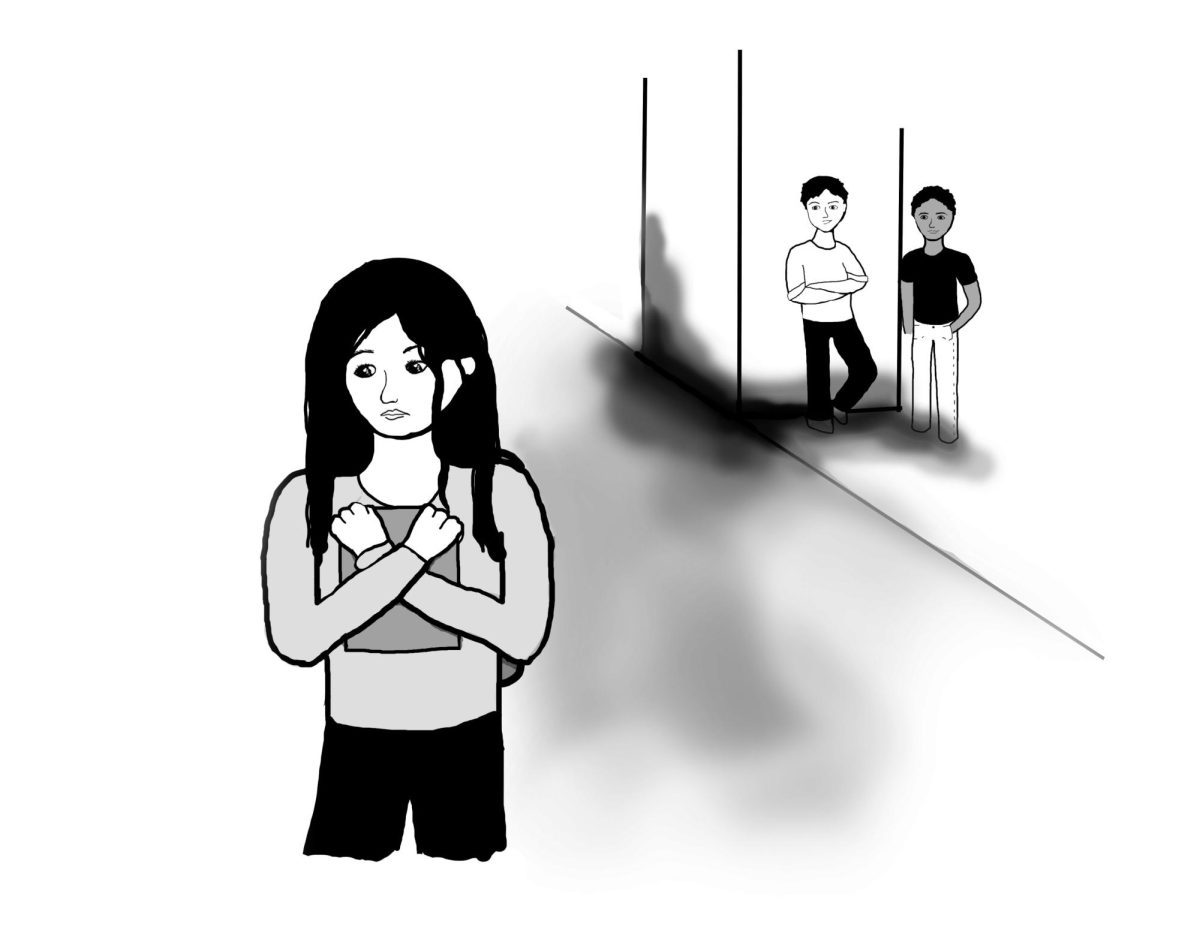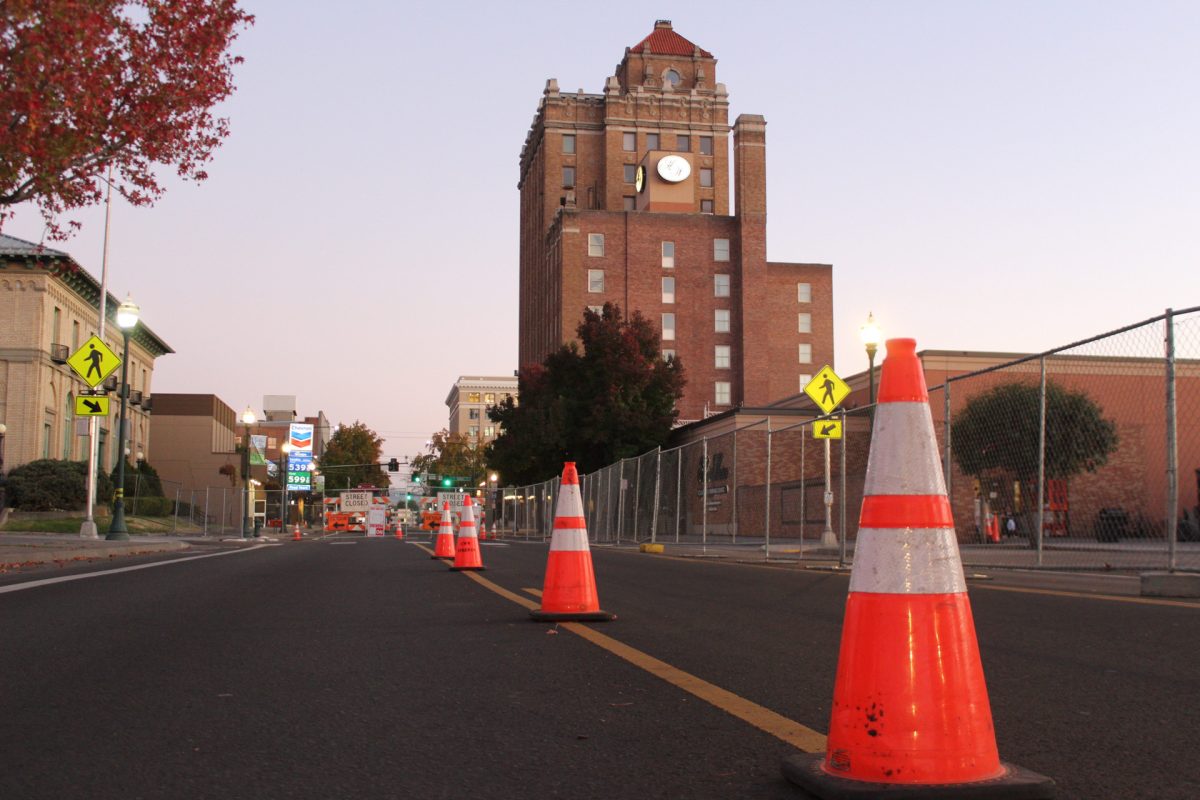
Break-ins may be on the rise in Walla Walla this year, but students living off-campus don’t have to feel powerless or isolated. Seniors Julie Grimm and Cadence Ellington took action after their house was burglarized twice this year, inviting Walla Walla Crime Prevention Coordinator Vicki Ruley and Crime Prevention Officer Robert Reed into their home for a safety inspection. This free service is available to anyone in the community and provides practical information about home security to homeowners, landlords and renters alike.
Ruley and Reed arrived at the students’ house and immediately began to notice safety hazards, from a hole in the front porch to a back window that could easily be opened from the outside. Many of these problems, Reed said, should be discussed with the landlord.
“Landlords and tenants both have rights and responsibilities,” Reed said. He explained that renters, as well as landlords, can be held accountable for injuries on the property caused by a hazard. No matter what is included in the lease, Ruley added, renters are guaranteed rights under the Residential Landlord-Tenant Act.
“You shouldn’t be taken advantage of just because you’re students,” said Ruley.
After the burglaries, Grimm, Ellington and their housemates have learned all about these rights. When an intruder broke their glass front door in October, their landlord initially refused to fix the damage or invest in safer doors and locks.
“We’ve had a lot of issues where we’ve literally had to print up our tenant rights and have them on the table and be like, these are our rights, you’re not doing this . . . and we can leave,” said Ellington.
Nancy Tavelli, associate dean of students and director of residence life, said that most Whitman students are more hesitant to talk to their landlords about potential hazards. Students need to be more involved in their own safety, even before signing a lease and moving in.
“When you’re looking for a house, ask a lot of questions. One problem is that some Whitman students don’t ask for what they need. Look carefully at houses before moving in and think about the neighborhood as well,” Tavelli said.
During the home inspection, Ruley and Reed also described physical improvements that students can make themselves, without involving a landlord. They examined windows in the home, pointing out vulnerable places that should be braced with a wooden dowel to prevent an intruder from opening them. Even an easy improvement, Ruley said, can make a big difference.
“The criminal’s going to look for the easy target. He or she’s going to walk around until they see the vulnerable window and if you have a stick or something there, they may think twice,” said Ruley.
Reed and Ruley described other simple but effective changes, including new deadbolts, outdoor lighting and timers for light bulbs or stereos that give the illusion that someone is home. Students keep predictable schedules, making them more vulnerable to burglary, Reed explained. During vacations, it is often obvious that a student house is empty.
“I know when you guys are there and when you’re not because of the cars. And if I can tell, everybody else can too, especially people who are looking,” said Reed.
Although physical changes to windows, lighting and locks are important, changes in student behavior are even more vital to increasing safety. Students, Reed explains, often forget to be aware of their surroundings.
“Always, I don’t care if you’re on campus, pay attention to what’s going on around you . . . we get focused on the goal of whatever we’re doing and lose track of what’s going on around us,” Reed said.
Ruley also stressed that students should keep track of activity in their neighborhood, calling the police if something doesn’t feel right. Many students see suspicious activity but hesitate to call the police because they don’t want to bother them.
“They’re not bothering anybody,” Ruley said. “It’s not like the cops aren’t out on the street doing it anyway. They’re not at the firehouse, waiting for the call to come in. They’re patrolling. And they’re looking for something to do.”
Communication within the neighborhood is another key to improving the safety of a home. Ruley advises students to get to know their neighbors and tell them when the home will be empty during breaks. Students should also help educate each other about all aspects of home safety, from physical improvements to behavioral changes and renters’ rights.
“Anything that someone does, improving lighting, doors, windows . . . it goes a long way in making a difference, but our most important thing is getting the word out,” said Ruley.
Through their break-in experiences, Grimm and Ellington have learned that educating themselves and others is important because students are not the only ones affected by crime.
“These are things that are applicable to Walla Walla, as a city,” said Grimm. “It makes you feel like it’s not just a campus thing.”
Meeting with community members and participating in the home security inspection have helped Grimm and Ellington feel less isolated since their break-ins.
“It feels good to have people in the community say that college students shouldn’t be taken advantage of. I think that’s a really important message,” said Ellington. “It definitely makes you feel less helpless.”
For information about tenants’ rights and responsibilities, visit Access Washington at access.wa.gov or washingtonlawhelp.org. To report a suspicious but non-emergency situation in Walla Walla, call 509-527-1960.

















